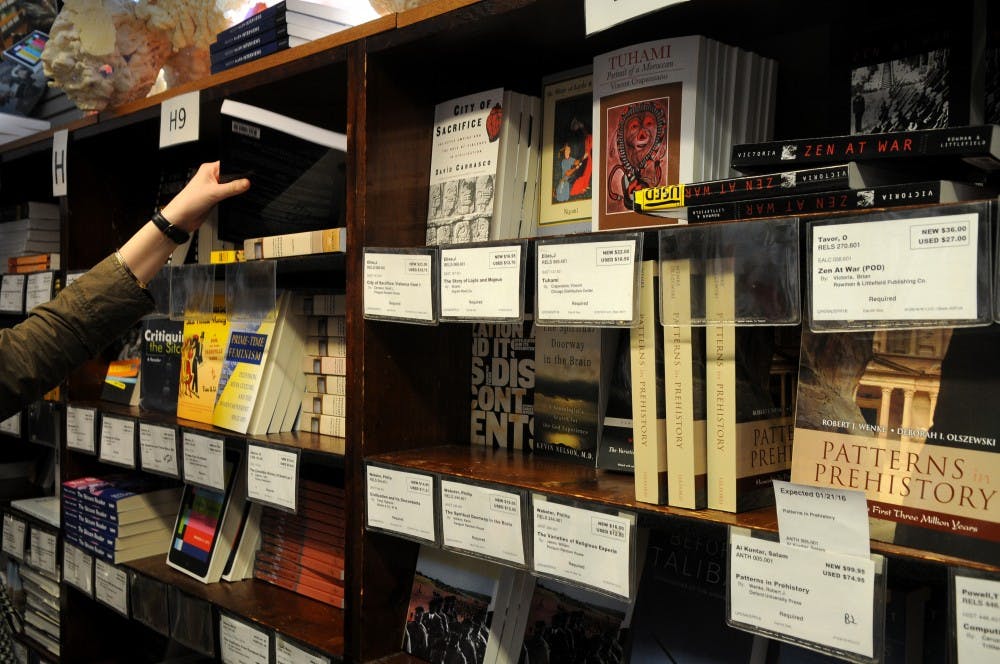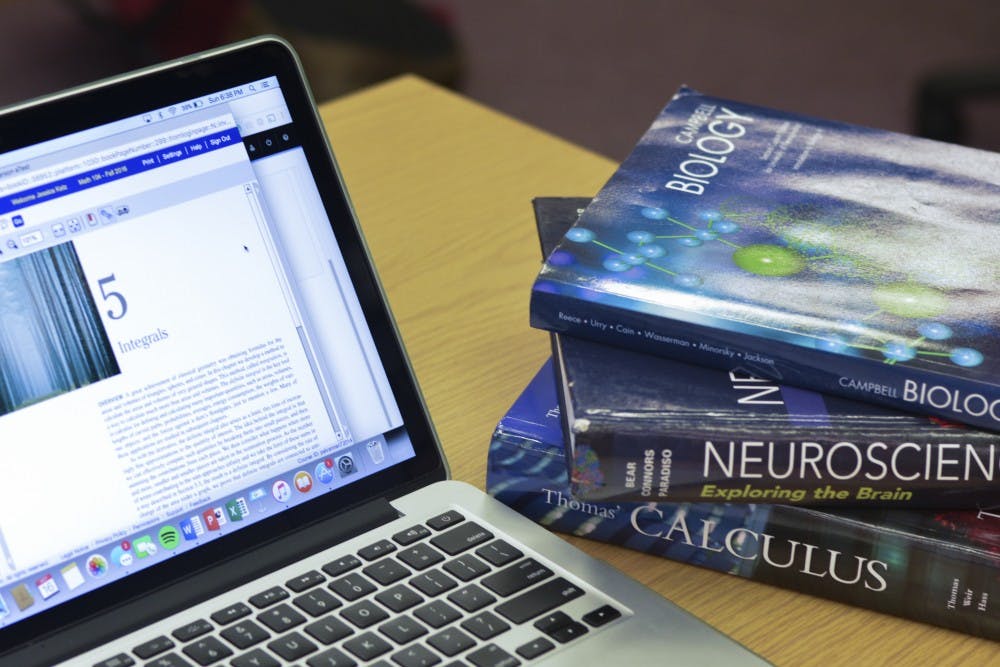
The First Generation Low-Income Textbook Library, which allows Penn students to donate and use textbooks, has felt a recent surge in demand, which has left the library in need of greater staffing, space, and funding.
Credit: Sam HollandPenn's First Generation Low Income Textbook Library helps students save hundreds of dollars on textbooks and allows them to donate old books each semester. But a recent surge in demand has left students and faculty calling for more space and funding to sustain the library.
"It’s reached the point where in order for it to be sustainable and be a helpful program, it needs more staff, organization, and tools like a library catalogue,” Penn First Finance and Operations Chair and College junior Melissa Perez said.
The FGLI library, formally created in 2017, lets students borrow more than 4,000 books free of cost and is housed on the third floor and attic space of the Greenfield Intercultural Center. Greenfield Intercultural Academic and Library Resource Coordinator Afuah Frimpong, who oversees the program, is the only official staff member of the library.
During the FGLI library's first few months, it had about 250 students participate in the program. In fall 2018, the library received more than 600 requests. This spring semester alone, it received more than 760 textbook requests from nearly 700 students using the library's resources.
Since the GIC leads multiple other University programs, the center also may not have enough physical space to expand the library, GIC work-study student and College junior Daniel Gonzalez said.
Frimpong implemented an online request system through Google forms to streamline the request process last semester. During the first few weeks of the spring semester, she received help from 10 work-study students to fulfill requests, but even with the additional support, processing requests is still time-consuming.

Staff members scour the FGLI library and package each individual student’s request under an ID number. One request can take about two hours to fulfill, Gonzalez said. He also said if a student makes a request and the library does not hold the book, they are directed to other resources.
“All the different centers have their needs, but it’s hard for all of it to get met, especially if the University only focuses on increasing its endowment or scholarship program,” Gonzalez said.
The library also lacks adequate software, and all of its information is currently stored on Google spreadsheets and forms.
Gonzalez added that GIC Director Valerie De Cruz and student leaders of Penn First have raised concerns with the program in meetings with University administrators.
When the library was created in 2017, students originally had to search for textbooks themselves. The program started with an informal drop-off and pick-up process “just based on an honor system,” Gonzalez said.

Penn First Internal Outreach Chair and College junior Sebastian Gonzalez, who has borrowed textbooks from the library before, said many professors do not understand the process low-income students go through to obtain the necessary books for their classes.
"They just say just go to the FGLI library, not understanding that there’s still long ways to go with making the library sustainable and really accessible to all students," Gonzalez said. “In the meantime while you’re waiting for the textbooks, the professor is assigning reading assignments, quizzes. There’s just a lack of understanding from professors."
The Daily Pennsylvanian is an independent, student-run newspaper. Please consider making a donation to support the coverage that shapes the University. Your generosity ensures a future of strong journalism at Penn.
Donate






